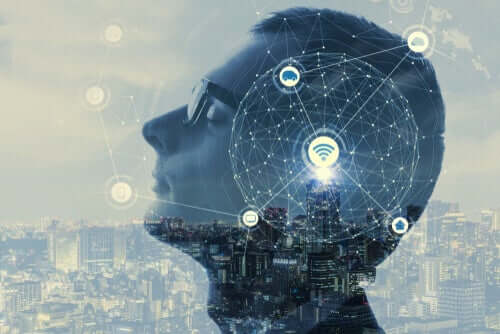Today’s world gives us the opportunity to be connected at any time, so every day we receive an enormous amount of information totally disproportionate to our real needs, from that excess comes informational obesity.
Clearly, it is difficult to digest all the information that comes to us, so we can end up becoming victims of the hyper-connectivity of today’s society.
- Throughout this article.
- We’ll talk about what informational obesity is.
- How to address this problem.
- And share four steps to maintaining balance when exploring the digital world.
- Let’s start with this reflection:.
“We built great information routes, but we forgot to learn to drive. -Francisco Pérez Latre-
Currently, due to the speed and efficiency of new technologies, we have several sources of information that are available to us on a daily basis, so today’s society deserves the name of “information society”.
However, this information is so present that it floods all areas of our lives, including psychological ones, which makes informational obesity closely related to our mental well-being.
To have greater well-being it is important to deal with this situation, how do you do it?Thanks to a digital regimen, that is, from a critical and cost-effective use of new technologies.
To do this it is essential to maintain healthy habits, with them it will be possible to manage the avalanche of information to which we are exposed:
For more well-being, it is good to follow a digital diet, we can start with a good information filtering system, so that our focus on information is not bombarded and we can avoid cognitive stress.
Every time we turn on the computer or mobile phone we are involved in an ecosystem of interrupting technologies, that is why Javier Serrano-Puche, in his article for the International Journal of Communication, proposes that attention be directed towards an awareness of what our consumption of information seems.
How do we relate to new technologies?What information is important and consistent with what we really need?, What information do we want in our lives?What content has the most weight for us and why?How do we filter the content?What sources do we use to inform ourselves?
All these questions are useful for transforming our relationship with the information and means from which we obtain it, so that we can focus on what we really need, without forgetting ourselves and being more responsible.
The digital regime leads us to regain control of our lives, with it we will have time for the people we love and for ourselves, since we will leave behind the dependence of the digital world. or to use it, Daniel Sieberg, Google executive, proposes:
These four steps must be completed in a 28-day plan, however, this will depend on each user, since depending on their occupation, lifestyle and leisure, the focus will be on certain services offered by the technology.
Thus, in order to overcome informational obesity, it is necessary to make good use of the digital world, for this it is important to detoxify ourselves by assessing how much we depend on it and applying strategies that allow us to make assertive use based on time. of the life we are in and our personal characteristics.
The problem is not the amount of information that comes to us, but the way we process it, so we need to identify what we want to receive and how to get us in the best way, for example, through filters.
It is essential to be very aware of our habits in relation to the digital world and their influence on our mental, physical, emotional and social health.

